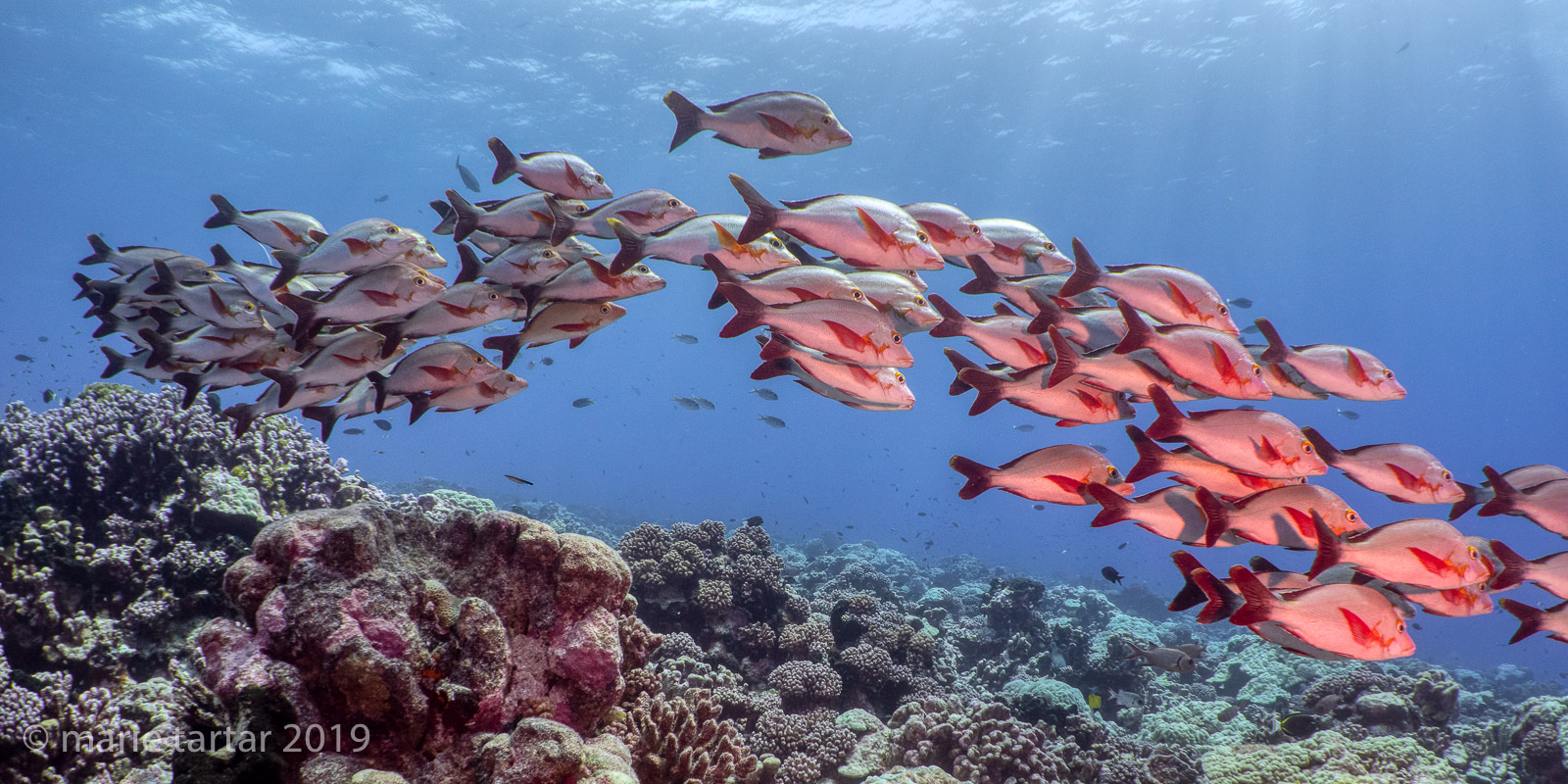
Wednesday, October 2, 2019
Rangiroa to Fakarava
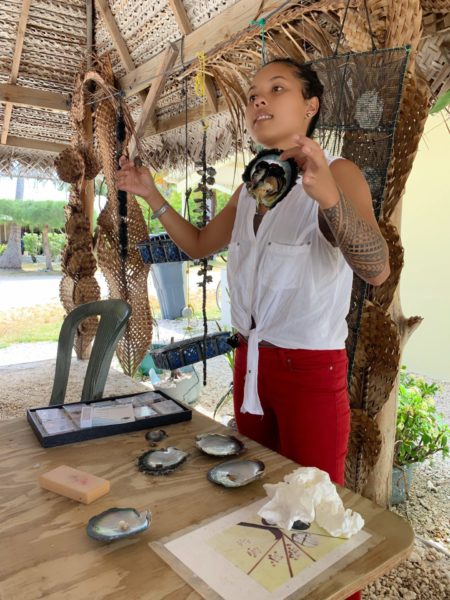
Our guide at Gauguin’s pearl farm takes us through the 5 year process of pearl cultivation. Black-lipped pearls grow over 3 years to an appropriate size before being seeded with a graft (a bit of the mantle of an oyster) and a round nucleus around which the nacre will be deposited.
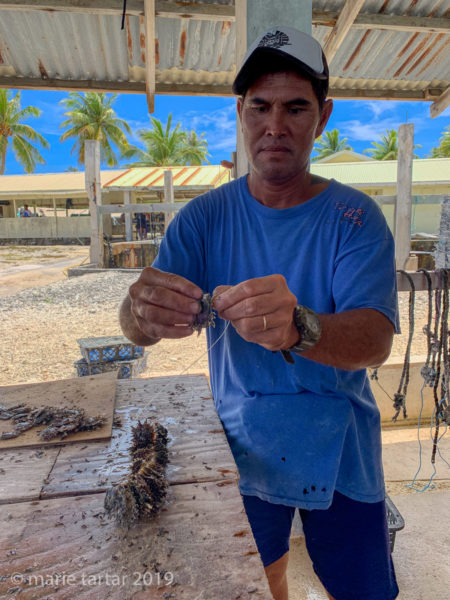
Stringing up baby oysters to be suspended in the ocean to grow up to a size that can support insemination.
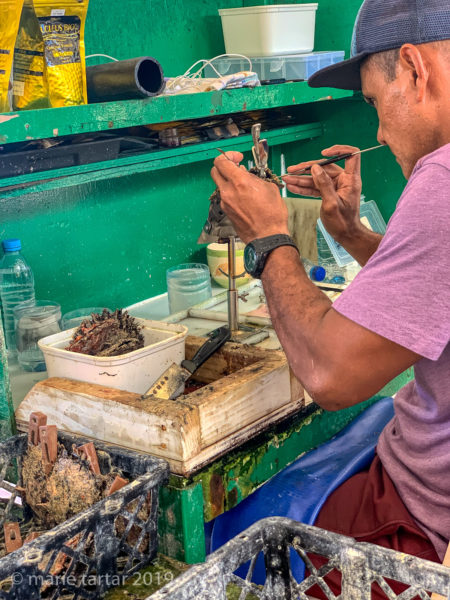
Introducing the elements of a future pearl into a pocket inside an oyster: a tiny bit of the mantle of a black-lipped oyster and a polished round nucleus of Mississippi freshwater river oyster. It takes two years of training to become a pearl technician.
The open air airport was shaken up by a lively drum set and a Polynesian dancing girl quartet, a special greeting for a pair of disembarking male VIPs, who proved to be the outgoing airport chief and his replacement. One of the dancer’s rotating hips were only slowed when her short red sarong became untied.
Linda and Terry headed off to Mo’orea to complete their 25th wedding anniversary celebration. Lois and Richard had departed Rangiroa a day earlier than the rest of the group and enjoyed a day of northern Fakarava diving, including octopus, sharks and 5 mantas! Greg’s departure opened up an opportunity for them to abandon their alternate abode in favor of a lagoon-front, sunset view bungalow at Havaiki next to ours. Having joined the group only months before departure, most of these small pensions weren’t able accommodate them.
Havaiki included a welcome surprise, air conditioning, our first on this trip. Actually, most everything about Havaiki pleasantly surprised me. The food was monochromatic, but reports of food poisoning from our fellow divers on the Aqua Tiki II on our prior year’s trip had me concerned. However, these remote atolls don’t have many accommodation choices, so I hoped we would fare better, which we did. I liked the tidy bungalows right above the sand on the lagoon side, with sunset views.
Thursday, October 3, 2019
Fakarava
dive 2: 96 ft, 56 min
A change in the weather made the long trip by boat (70 minutes under good conditions) to Fakarava Sur possible. Only the evening before, Nico had traveled there by boat, with the winds and waves conspiring to make it a 4 hour trip.
Our first dive was with an outgoing current, so milky visibility was predicted and encountered. The sharks were certainly present in abundance, but obscured by the conditions and difficult to approach as closely as had been possible on our prior trip.
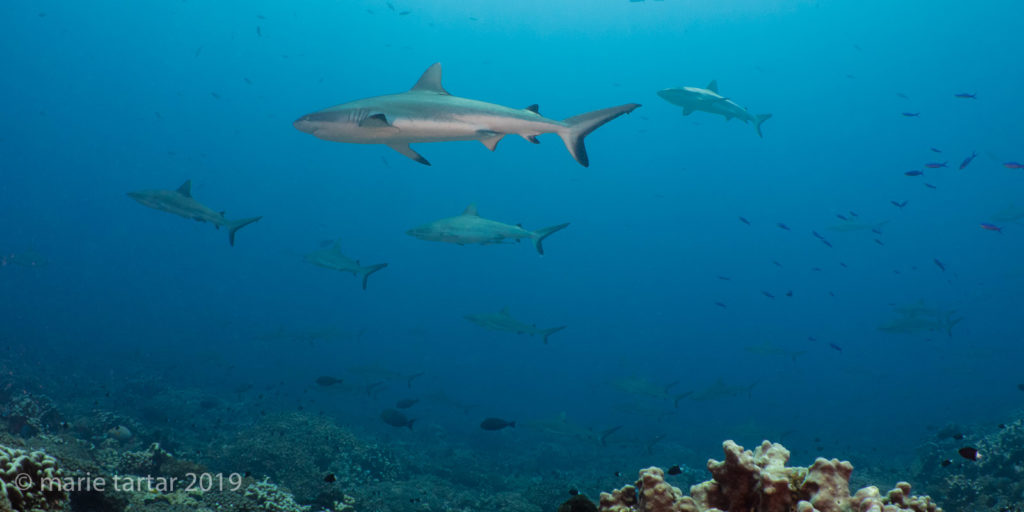
Many gray reef sharks can be discerned, despite the milky conditions we encountered in Fakarava Sur’s wall of sharks.
Nico snorkeled with Barb during our first dive. For lunch, we were whisked by Nico to Motu Aito Pension, a formerly family run business newly managed (as of the prior month) by TopDive. Our enjoyment of the remote setting was mildly tempered by the abundance of persistent flies who dogged us during a lunch of grilled fish, rice and a pink, beet-tinged potato salad.
The second, incoming current dive had mildly better visibility.
For the ride home, we hunkered down, with Steve squeezing out full-length in a non-existent space at our feet. A blond Polynesian TopDive employee hitched a ride back, with a boombox wrapped in a towel, stretching out full length at the back, one leg dangling near the propellers and his head resting on the gunnel.
Friday, October 4, 2019
Fakarava
dive 3: 79 ft, 47 min
The evening before, the receptionist appeared at our dinner table saying Steve, Marie and 2 others could do an extra morning dive if we wanted. Kate and Quentin bit and the four of us were picked up at 7:35 am and paired with a group of 5 French-speaking divers from a strange looking cruise ship docked nearby, the Aranui. The Aranui is both cruise ship and a supply vessel, taking passengers on 13-day voyages between Tahiti and the Marquesas, stopping in at Bora Bora, Rangiroa and Fakarava en route.
The dive was mellow, not a lot happening. For me, a relatively cooperative Moorish idol redeemed it.
Our scheduled afternoon dives were exciting, especially the second. A group of mantas could be seen briefly at the drop-off, feeding, not interested in close-ups or interaction, but still wonderful to see. The highlight was a huge, tight school of goatfish.
Steve learned at first hand what Richard meant when he warned us “not to get between Lois and her camera!” This was my first outing shooting our new back-up camera, the Olympus TG6. It had a plastic-y feeling and I found it tough to tell underwater if I focused successfully, but later review confirmed it is a remarkable performer. Steve struggled a bit shooting my camera for the first time.
Saturday, October 5, 2019
Fakarava
Dive 2: 86 feet, 61 minutes
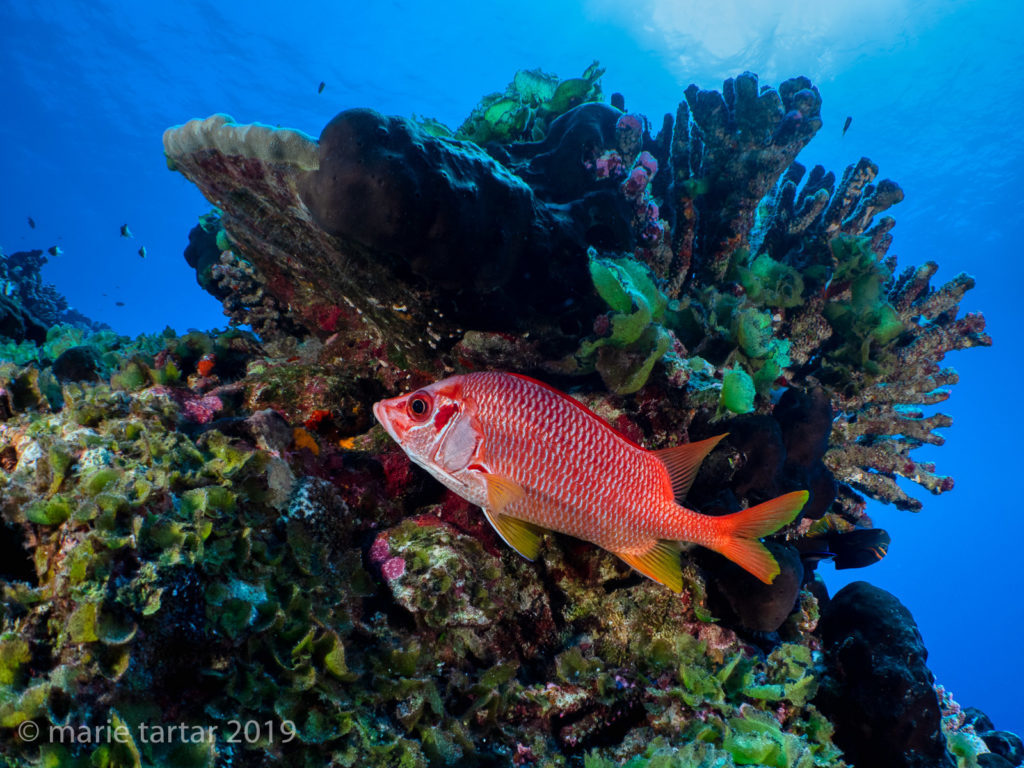
Sabre squirrelfishe (Sargocentron spiniferum) at a cleaning station, Fakarava, Tuamotos, French Polynesia
Our last 2 dives were again afternoon dives. The mantas were sighted again, deep, cruising along the drop-off, feeding. I thought we were going to lose Lois to the deep siren call of the mantas. Gray reef sharks were criss-crossing the Fakarava North equivalent of the “wall of sharks”.
Schools of barracudas and whorls of humpback red snappers rounded out the dive.
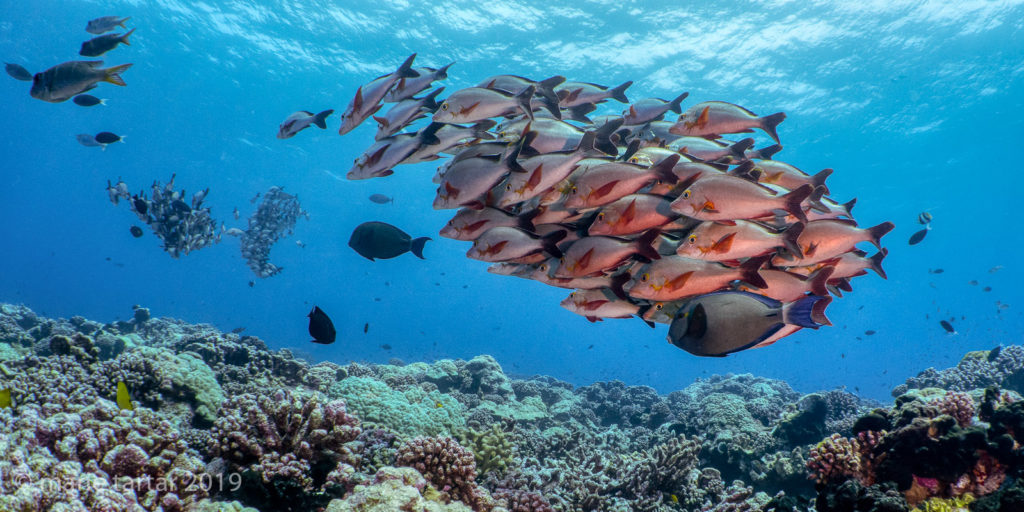
Tightly whorling schools of humpback snappers (Lutjanus gibbus) dotted the reef of Fakarava North (Tuamotos, French Polynesia).
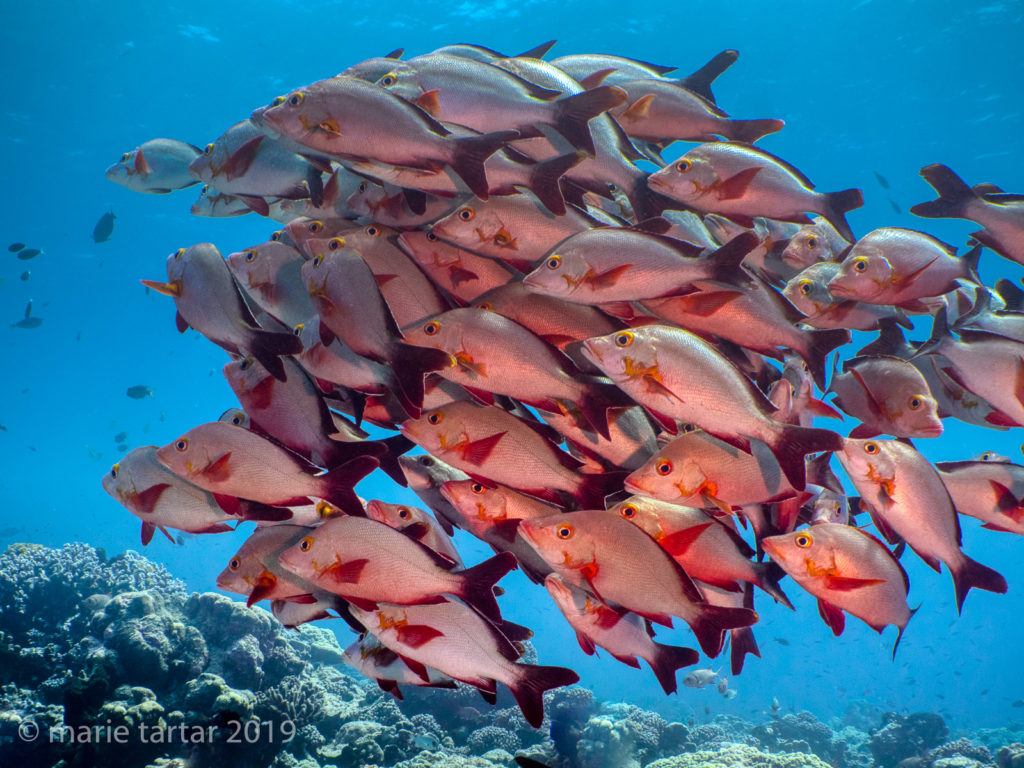
Humpback snapper (Lutjanus gibbus) school hovers above the reef in Fakarava North (Tuamotos, French Polynesia).
Abundant red squirrel fish cowered under ledges.
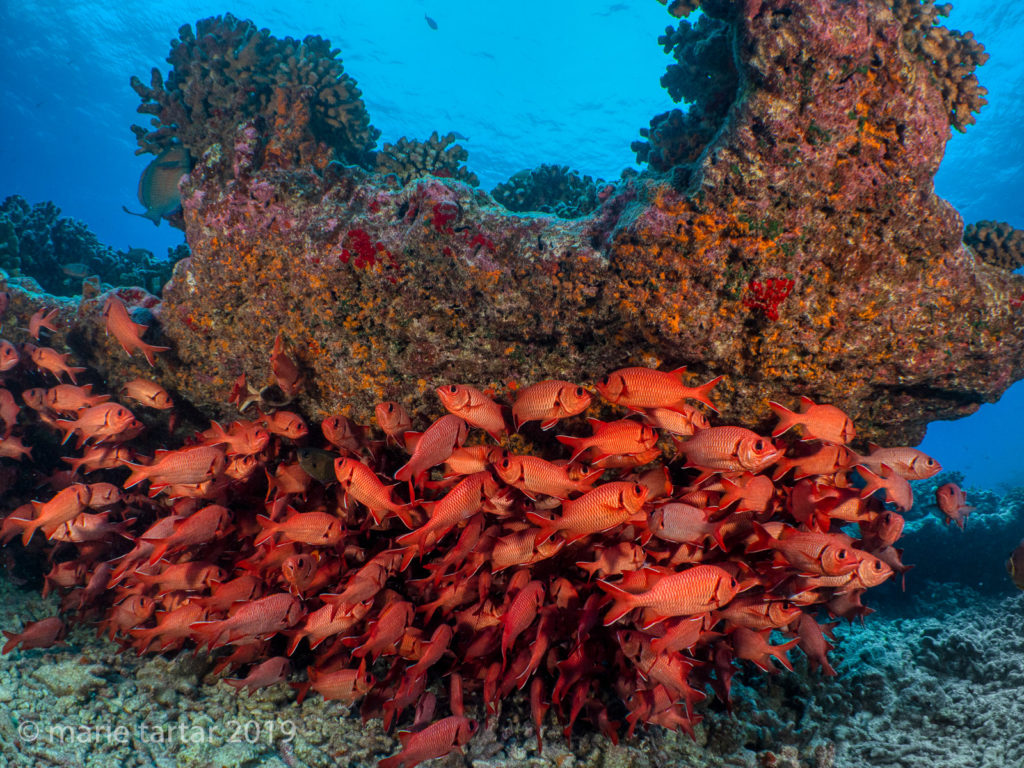
These squirrelfish look a little disordered, but not à la “animals fleeing the forest” in Bambi (North Fakarava, Tuamotos, French Polynesia).
All too soon, the last dive was called and the process of rinsing gear, breaking down cameras and air drying wetsuits began.
After dickering for a third evening trying it on, I finally succumbed to the persistent calls of a necklace by French sculptor, DiDariel. This contemporary sculptural jewelry line incorporates stones and in many pieces, magnets. The necklace I ultimately couldn’t resist featured a huge, silver, grotesquely irregular pearl, large enough to be split and to conceal a magnetic closure within, a unique souvenir of an unforgettable trip.
About a month later, we compared notes over pizza with Nancy and Gerry, who had been pursuing humpback whales and diving on Mo’orea with our mutual friends Bob and Debbie, while we were in the Tuamotos. His email reference to “our “technical” problem or …how I lost my new camera rig” did not prepare me for the sight of his camera-less metal tray, bent, his camera sliced clean off by a boat propeller! Although they were happy with their operator, there were lessons to be (re)learned in their story. Apparently, a strong current was pushing their boat into the reef as they prepared to backroll in. Nancy and Gerry landed virtually on top of the reef (lesson 1: always check behind before backrolling in). The boat driver gunned the boat trying to avoid the reef. Gerry pushed Nancy out of the way and fended off the oncoming propeller with his camera, miraculously not losing his hands in the process.
Only 2 weeks after our return, there was a horrific incident in which a French tourist actually did lose her hands (and a breast) while snorkeling in Mo’orea, not to a boat propeller, but to an oceanic white-tipped shark. Per Bob, they are “very inquisitive” and he has had to fend them off using his camera. This story strengthens my resolve to always dive with a camera AND gloves, less light-colored hands be mistaken by a fast-moving shark for fish.
As I write this, it is the coldest, wettest and rainiest Thanksgiving I can remember in almost 30 years living in San Diego. I’m abundantly thankful to have experienced, twice, the topside and underwater charms of French Polynesia and am dreaming of being back in the warm caressing breeze of the tropics. Maybe Mo’orea is in our future for more humpback encounters? I fervently hope so!
-Marie

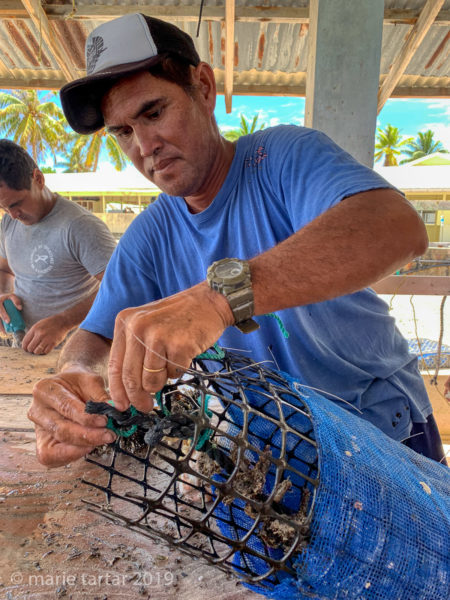
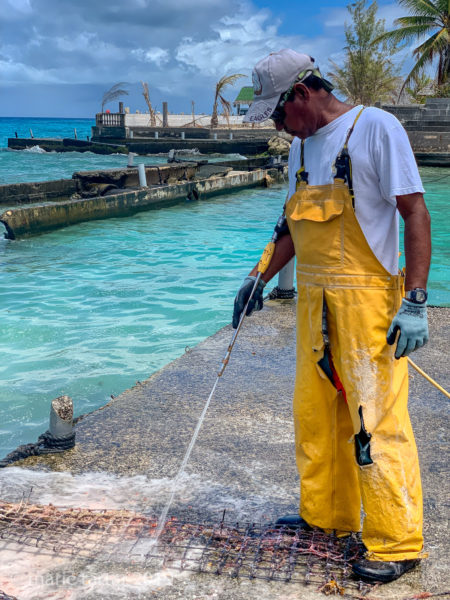
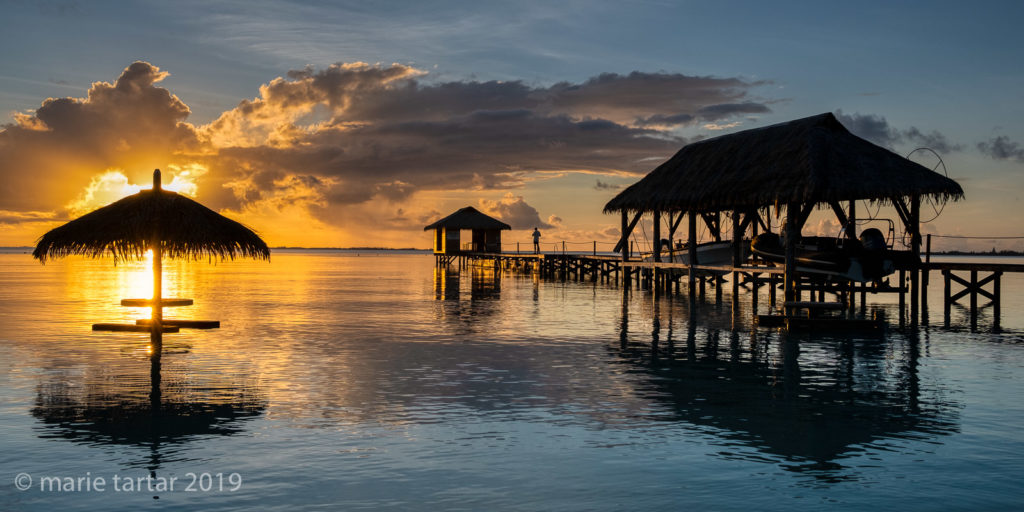
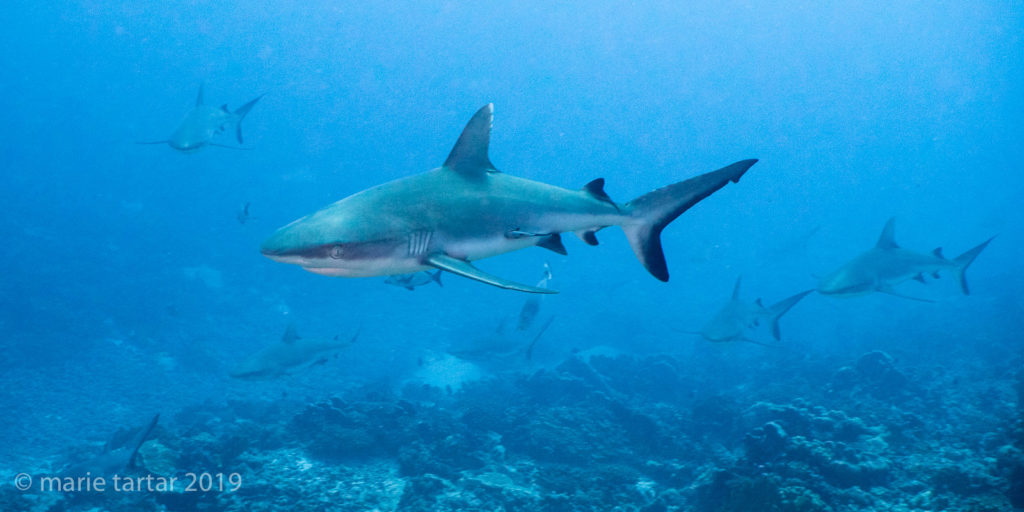
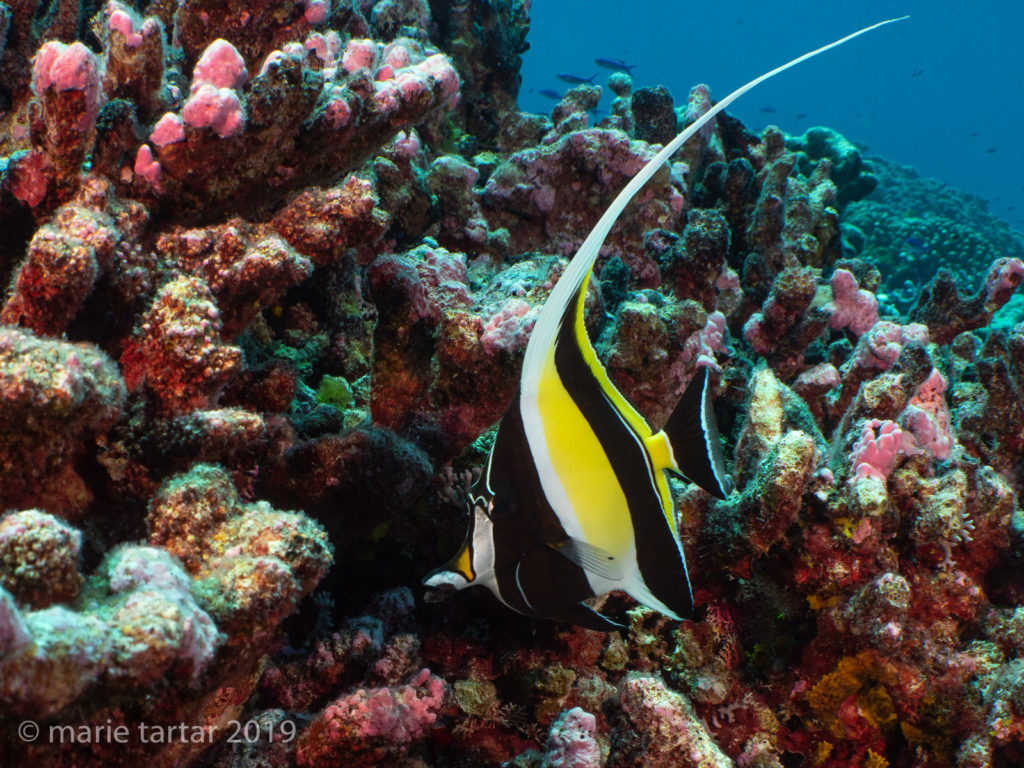
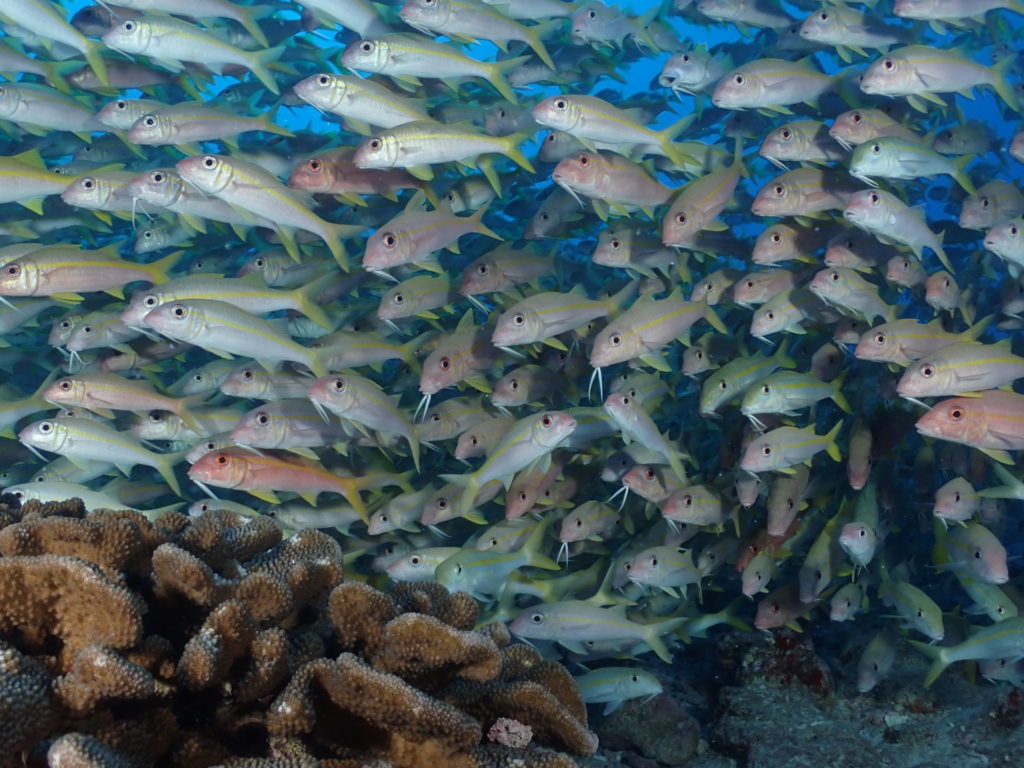

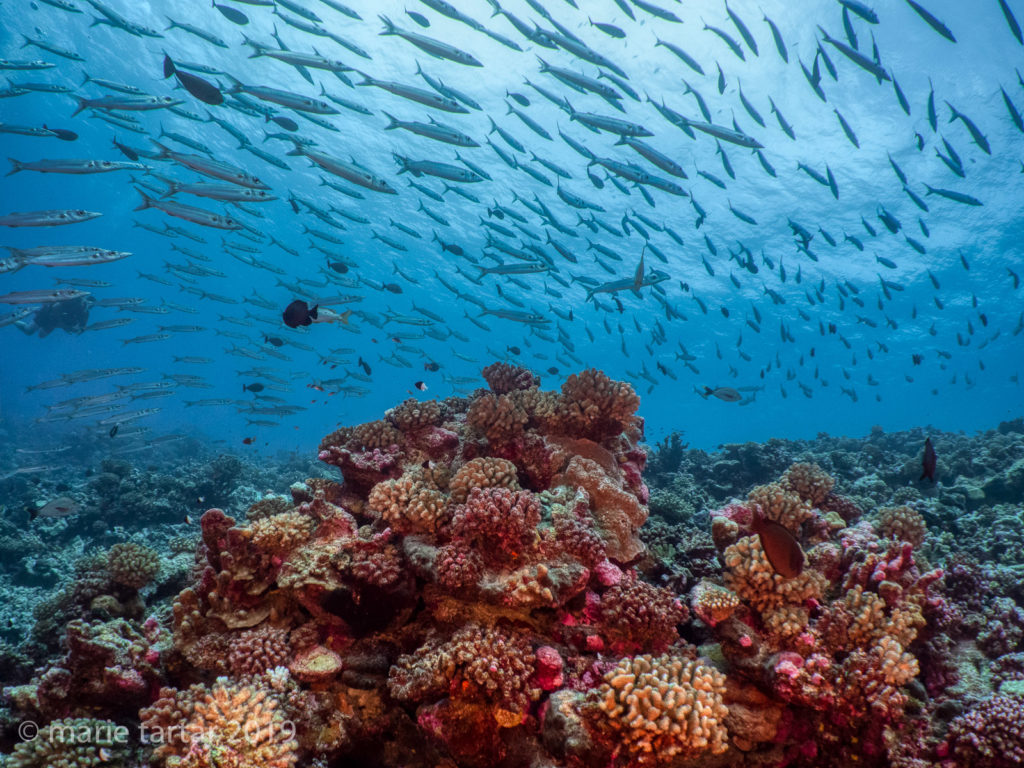
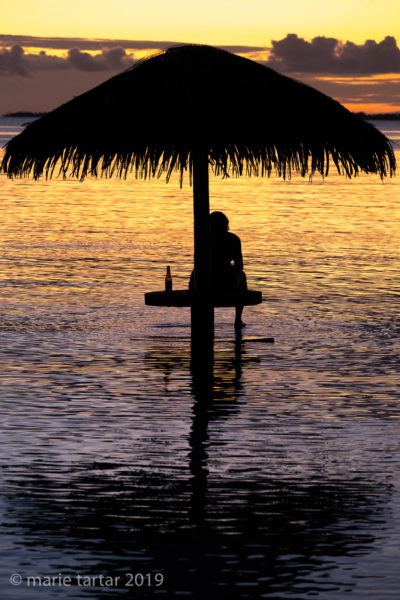
Steve and Marie:
Thanks again for including me.
Did you get my last comment of thanks?
Never saw any response though you, of course, don’t have to.
It would be nice though.
Bill
Hi Bill,
Thanks for checking out the post(s)! We are actively preparing for a 2-woman show in which my underwater work will be featured at a local gallery in January. Happy thanksgiving!
-Marie